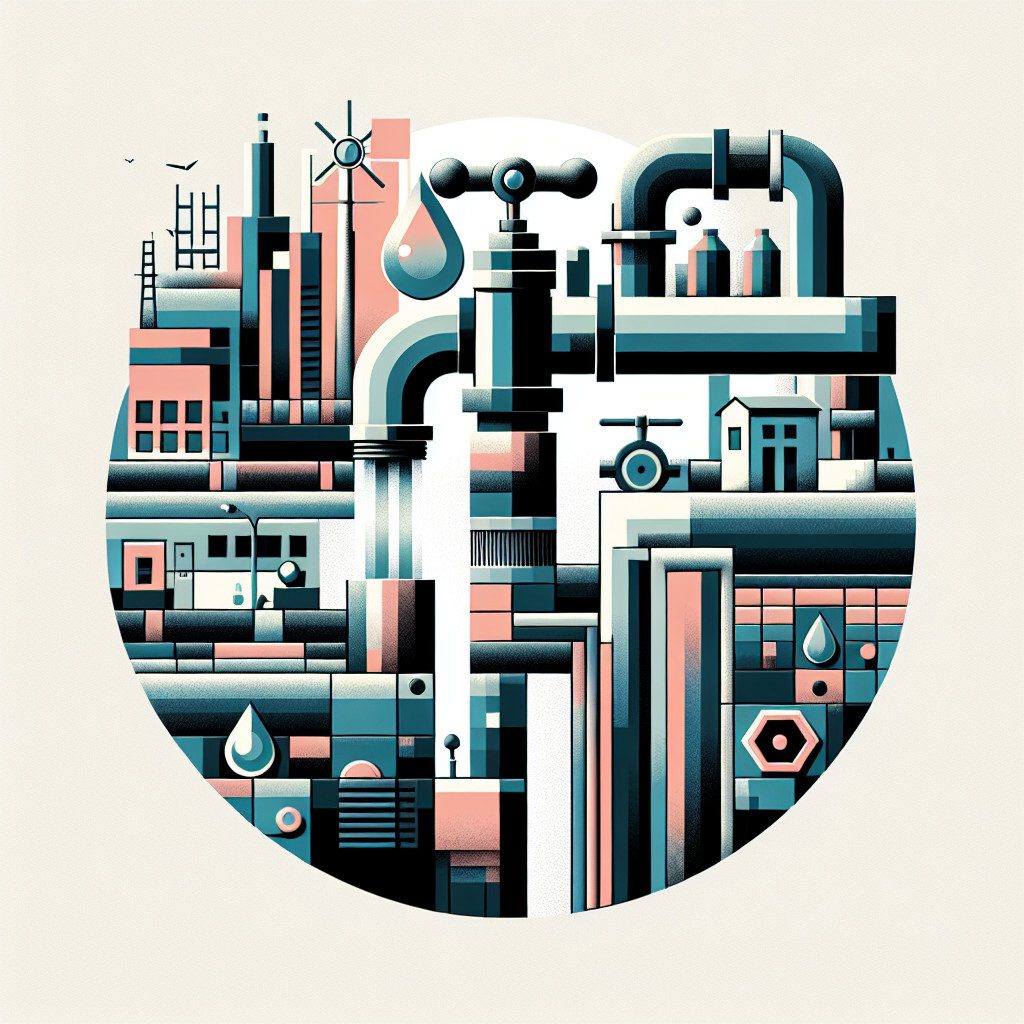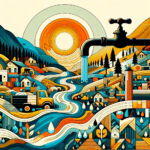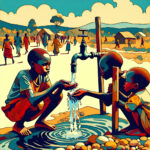-
Table of Contents
“Rwanda’s Tap Water: A Journey Towards Purity and Accessibility.”
Introduction

The tap water in Rwanda is generally considered safe for drinking due to the country’s extensive efforts in improving water supply and sanitation over the years. The government has invested heavily in water treatment facilities and distribution systems to ensure the provision of clean and safe water to its citizens. However, in some rural areas, access to clean tap water can still be a challenge, and waterborne diseases can be a risk. Therefore, while the tap water in urban areas of Rwanda is typically safe to drink, it is often recommended for travelers to use bottled water or water purification methods as a precaution.
Understanding the Quality of Tap Water in Rwanda
Rwanda, a landlocked country located in East Africa, has made significant strides in improving access to clean water for its citizens. However, the quality of tap water in Rwanda is a subject that requires a comprehensive understanding. This article aims to provide an in-depth analysis of the current state of tap water in Rwanda, focusing on its quality, safety, and the efforts made by the government and non-governmental organizations to improve it.
Rwanda’s tap water is primarily sourced from surface water bodies such as lakes, rivers, and reservoirs. The water undergoes treatment processes to remove impurities and harmful microorganisms before it is supplied to households. However, the quality of tap water can vary significantly across the country, largely due to differences in water treatment facilities and infrastructure.
In urban areas like Kigali, the capital city, the tap water is generally safe for consumption. The Water and Sanitation Corporation (WASAC), the national utility responsible for water supply, has invested heavily in modern water treatment plants and distribution networks. These investments have resulted in improved water quality, with the tap water meeting the World Health Organization’s guidelines for drinking water quality.
However, in rural areas, the situation is quite different. Many rural communities lack access to treated tap water and rely on untreated surface water or shallow wells, which are often contaminated with harmful bacteria and parasites. Even in areas where tap water is available, the quality can be inconsistent due to inadequate water treatment and old, corroded pipes that can introduce contaminants into the water.
The Rwandan government, in collaboration with international donors and non-governmental organizations, has been working tirelessly to improve the quality of tap water across the country. These efforts include upgrading water treatment facilities, replacing old pipes, and expanding the water distribution network to reach more rural communities. Additionally, there are ongoing initiatives to educate the public about the importance of safe water and proper hygiene practices to prevent waterborne diseases.
Despite these efforts, challenges remain. The high cost of water treatment and infrastructure development, coupled with the country’s rapid population growth and urbanization, puts a strain on the water supply system. Furthermore, climate change poses a significant threat to water resources, with changing rainfall patterns affecting the availability and quality of surface water.
In conclusion, the quality of tap water in Rwanda is a tale of two realities. In urban areas, significant progress has been made, and the tap water is generally safe for consumption. However, in rural areas, access to clean, safe tap water remains a challenge. The government and its partners are making commendable efforts to address these issues, but more needs to be done to ensure that every Rwandan has access to safe drinking water. As consumers, it is also crucial to be aware of the quality of tap water in our areas and take necessary precautions, such as boiling or filtering water, especially in areas where the quality of tap water is questionable.
The Progress and Challenges of Rwanda’s Tap Water System
Rwanda, a small landlocked country in East Africa, has made significant strides in improving its tap water system over the past few decades. The country’s commitment to providing clean and safe drinking water to its citizens is evident in the numerous initiatives and projects that have been implemented. However, despite the progress, there are still challenges that need to be addressed to ensure that every Rwandan has access to clean tap water.
In the aftermath of the 1994 genocide, Rwanda’s infrastructure was in ruins, and access to clean water was a significant challenge. However, the government, in collaboration with international partners, embarked on an ambitious plan to rebuild the country’s water infrastructure. This included the construction of water treatment plants, the laying of thousands of kilometers of water pipes, and the establishment of community water points. As a result, access to clean tap water in Rwanda has increased significantly. According to the World Health Organization, in 2017, 87% of Rwanda’s urban population and 77% of its rural population had access to at least basic drinking water services, up from 77% and 68% respectively in 2000.
The government’s efforts have been complemented by innovative solutions from the private sector. For instance, some companies have introduced prepaid water meters, which allow consumers to pay for their water usage in advance. This not only ensures that consumers only pay for the water they use but also helps to reduce water wastage. Additionally, other companies have introduced water ATMs, which provide clean water 24/7 and can be accessed using a prepaid card.
However, despite these significant strides, challenges remain. One of the main challenges is the uneven distribution of water resources. While access to clean tap water has improved significantly in urban areas, rural areas still lag behind. This is mainly due to the high cost of extending water infrastructure to these areas, coupled with the low population density. Additionally, the quality of tap water, especially in rural areas, is still a concern. Although the government has made efforts to improve water treatment, contamination can still occur due to poor sanitation and hygiene practices.
Another challenge is the sustainability of the water supply. Rwanda, like many other African countries, is vulnerable to climate change, which can lead to unpredictable rainfall patterns and prolonged droughts. This can affect the availability of water, especially in areas that rely on surface water sources. To address this, the government has been investing in rainwater harvesting and storage infrastructure. However, more needs to be done to ensure that these systems are accessible to all Rwandans.
In conclusion, Rwanda has made significant progress in improving its tap water system. The government’s commitment, coupled with innovative solutions from the private sector, has resulted in increased access to clean water. However, challenges such as uneven distribution of water resources, water quality, and sustainability of the water supply still need to be addressed. As Rwanda continues on its journey towards achieving universal access to clean water, it is clear that a multi-faceted approach that includes investment in infrastructure, promotion of innovative solutions, and strengthening of policies and regulations is needed.
Health Implications of Drinking Tap Water in Rwanda
Rwanda, a small landlocked country in East Africa, has made significant strides in improving access to clean water for its citizens. However, the quality of tap water in Rwanda, particularly its health implications, remains a topic of concern for both residents and visitors.
Rwanda’s government has made commendable efforts to improve the country’s water infrastructure. The country has one of the highest rates of access to clean water in Sub-Saharan Africa, with over 85% of the population having access to improved water sources. This is a significant achievement, considering that just a few decades ago, the figure was less than half.
Despite these improvements, the quality of tap water in Rwanda is not always guaranteed. While the water supplied by the national utility company, WASAC, is generally safe to drink, the quality can vary depending on the location. In urban areas like Kigali, the capital city, the tap water is usually treated and safe to drink. However, in rural areas, the quality of tap water can be compromised due to inadequate treatment and contamination from agricultural runoff and other pollutants.
The health implications of drinking tap water in Rwanda can be severe, particularly for those with compromised immune systems. Waterborne diseases such as cholera, typhoid, and dysentery are prevalent in areas where the water quality is poor. These diseases can cause severe diarrhea, vomiting, and in severe cases, can be fatal.
Furthermore, the presence of harmful bacteria and parasites in the water can lead to other health problems. For instance, the waterborne parasite schistosomiasis is endemic in some parts of Rwanda. This parasite can cause a range of health problems, from mild symptoms like diarrhea and abdominal pain to severe complications like liver and kidney damage.
In addition to microbial contaminants, the tap water in some parts of Rwanda has been found to contain high levels of heavy metals like lead and arsenic. These heavy metals can accumulate in the body over time, leading to a range of health problems including neurological damage, kidney disease, and cancer.
To mitigate these health risks, many Rwandans opt to boil their tap water before drinking it. Boiling water is an effective way to kill most bacteria and parasites, and it can also help to remove some heavy metals. However, it is not a foolproof solution, as some contaminants can withstand high temperatures.
Another common practice is to use water purification tablets or filters. These can be effective at removing most contaminants, but they can also be expensive and not always readily available, particularly in rural areas.
In conclusion, while Rwanda has made significant progress in improving access to clean water, the quality of tap water can still pose health risks. Therefore, it is advisable for both residents and visitors to take precautions when drinking tap water in Rwanda. This can include boiling the water, using water purification tablets or filters, or opting for bottled water, particularly in rural areas where the quality of tap water is less reliable.
The Role of Government in Improving Rwanda’s Tap Water Quality
Rwanda, a small landlocked country in East Africa, has made significant strides in improving the quality of its tap water over the past few decades. The government of Rwanda has played a pivotal role in this transformation, implementing a series of measures aimed at ensuring that every citizen has access to clean and safe drinking water. This article will delve into the role of the Rwandan government in enhancing the quality of tap water in the country.
The Rwandan government, recognizing the importance of clean water for the health and well-being of its citizens, has made water quality a top priority. The government has implemented a comprehensive water supply strategy that includes the construction of new water treatment plants, the rehabilitation of existing facilities, and the expansion of the water distribution network. This strategy is aimed at increasing the availability of clean tap water, particularly in rural areas where access to safe drinking water has traditionally been a challenge.
In addition to infrastructure development, the government has also focused on strengthening the regulatory framework for water quality. The Rwanda Utilities Regulatory Authority (RURA) is tasked with monitoring the quality of tap water and ensuring that it meets the required standards. RURA conducts regular inspections of water treatment plants and carries out tests on tap water samples to check for the presence of harmful substances. The results of these tests are made public, providing transparency and accountability in the management of the country’s water resources.
The government has also invested in capacity building to enhance the skills and knowledge of those involved in water supply management. Training programs have been established for water treatment plant operators, engineers, and other professionals in the sector. These programs are designed to equip these individuals with the latest techniques and technologies for water treatment and quality control. This investment in human resources is crucial for maintaining the high standards of tap water quality in Rwanda.
Public education is another key component of the government’s strategy. The government, through various campaigns, has sought to raise awareness about the importance of clean water and the dangers of consuming contaminated water. These campaigns also provide information on how to properly store and handle tap water to prevent contamination. This focus on public education is aimed at promoting responsible water use and ensuring that the efforts to improve tap water quality translate into improved health outcomes for the population.
The government’s efforts have yielded impressive results. According to the World Health Organization, the percentage of the population with access to clean drinking water in Rwanda has increased significantly over the past two decades. Moreover, the incidence of waterborne diseases has declined, demonstrating the positive impact of improved water quality on public health.
In conclusion, the Rwandan government has played a crucial role in improving the quality of tap water in the country. Through infrastructure development, regulatory oversight, capacity building, and public education, the government has made significant strides in ensuring that all Rwandans have access to clean and safe drinking water. While challenges remain, the progress made so far is a testament to the government’s commitment to improving the quality of life for its citizens.
Q&A
1. Question: Is tap water safe to drink in Rwanda?
Answer: No, tap water in Rwanda is generally not considered safe to drink. It’s recommended to drink bottled or boiled water.
2. Question: What are the common contaminants in Rwanda’s tap water?
Answer: The common contaminants in Rwanda’s tap water include bacteria, viruses, and parasites such as Giardia and E. Coli.
3. Question: Are there efforts to improve the tap water quality in Rwanda?
Answer: Yes, the government of Rwanda and various NGOs are working on improving water infrastructure and sanitation to enhance the quality of tap water.
4. Question: How do locals in Rwanda usually consume their water?
Answer: Locals in Rwanda typically consume water that has been boiled, treated with chlorine, or purchased in sealed bottles.
Conclusion
The tap water in Rwanda is generally not safe to drink. Despite improvements in water supply infrastructure, contamination issues due to inadequate sanitation facilities and poor hygiene practices often compromise the water quality. Therefore, it is recommended to drink bottled or boiled water.






